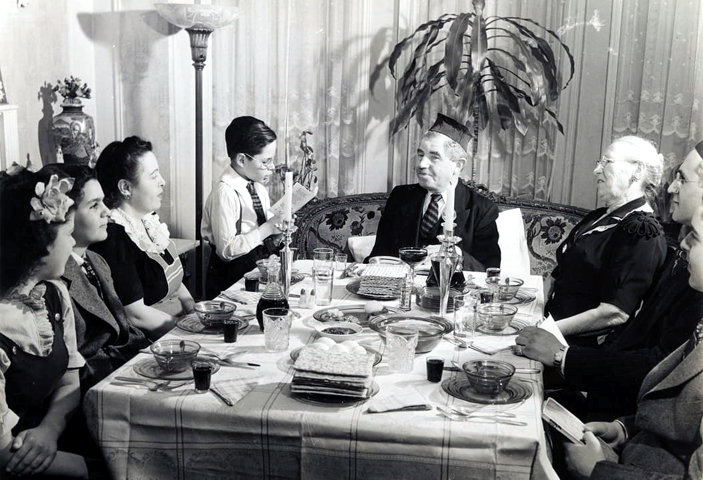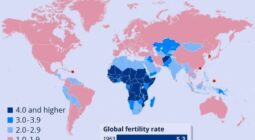Passover 2022 begins at sundown on Friday, April 15 2022.
This year, Passover 2022 will be celebrated from sundown on Friday April 15 to sundown on Saturday April 23. The first Seder will be on April 15 after nightfall, and the second Seder will be on April 16 after nightfall.
Traditionally known as a major Jewish holiday, many Christians have also begun to take part in celebrating Passover.
It is also said that the Jewish people have been celebrating Passover for over 3,000 years.
Passover’s dates are pegged to the Hebrew calendar, based on the lunar cycle. The date of the festival is in accordance with the first full moon in the Hebrew calendar month, Nissan. For this reason, the date changes every year. It starts in the middle of the month of Nisan, when the moon is full, typically falling in March or April of the Gregorian (modern) calendar. As a result, Passover typically begins very close to Easter.
On an advanced day, Passover is also called the spring festival celebrated for 8 days. Traditionally, in many Reform Jewish communities, Passover is celebrated for seven days, not eight. In more traditional Jewish communities—including both Orthodox and Conservative communities—Passover is celebrated for eight days.
The Hebrew name, Pesach, means “to Passover” because G-d (traditionally not good to mention full name) passed over the Jewish homes to spare them from death.
The Israelites had been slaves to Egyptian pharaohs for many decades.
History describes a great man named Pharaoh who wanted to control the number of Jews living in Egypt. To do this, he ordered the killing of all male Jewish babies. The mother of Moses put him in a basket on the Nile River. Pharaoh’s daughter found and adopted Moses. When he grew up, Moses fled to the desert where God told him to go back to Egypt and lead the Israelites out of slavery.
Moses appealed to Egyptians Pharaoh to let his people go, Pharaoh ignored. Instead he continued to command the death of every first-born child. God sent a plague on Egypt that destroyed many livestock and agro-products.
Later, Moses said, Passover eve as the plague in Egypt killed all first-borns children.
The Lord told Moses, however, that he would pass over any home that had the blood of a lamb on their doorposts. It was after this final plague that Pharaoh finally let the Israelites go.
Because they had to leave in a hurry, there wasn’t enough time for their bread dough to rise. This is why Passover is also referred to as the Feast of Unleavened Bread.
Thus, the holiday is also called the Festival of Unleavened Bread. The roots of this Jewish holiday can be found in the Old Testament of the Bible. The main purpose of the holiday is to commemorate the Biblical story of Exodus. This is when God freed the Israelites from slavery in Egypt.
The holiday begins with the Passover Seder taken with friends and loved ones. Family and friends gather together after nightfall on the first and second nights of the holiday for the high point of the festival observance, the Seder. This is a ritual feast that includes reading, drinking wine, washing the hands, eating special foods, and signing.
A traditional Seder meal consists of four cups of wine, veggies dipped in saltwater, flatbread called matzah, bitter herbs, such as horseradish, and roasted lamb. Each of the foods are arranged on a Seder plate. The food and wine are ingested in a certain order.
During the Seder, which means “order” in Hebrew, the experience of the Exodus is told in story, song, prayer, and the tasting of symbolic foods.
In Bible, one of those passages is Deuteronomy 16:3, which says, “You shall not eat leavened bread with it; seven days you shall eat with it unleavened bread, the bread of affliction (for you came out of the land of Egypt in haste), so that you may remember all the days of your life the day when you came out of the land of Egypt.” Because he was Jewish, Jesus celebrated the Passover, which is why many Christians choose to celebrate this traditional Jewish holiday.

The holiday of Pesach, or Passover, is an annual weeklong festival commemorating the emancipation of Jewish peoples from slavery (in ancient Egypt).
The dates are based on the Hebrew calendar, from the 15th day of the Hebrew month of Nissan (or Nisan) through the 22nd day.
Nissan 14 was the Passover as mentioned in the Torah; at this time, an offering to the Lord, the sacrifice of a lamb, was slaughtered during the afternoon and prepared.
Nissan 15 (the new day starting at sundown) was the beginning of the seven-day Festival of Unleavened Bread.
On the start of Nissan 15, the Passover lamb that had been sacrificed and prepared on Nissan 14 (that same afternoon) was eaten that night (now Nissan 15), along with unleavened bread. Over time, the Festival of Unleavened Bread commonly became known as “Passover” and is usually considered as starting at sundown between Nissan 14 and Nissan 15.
On the 15th day of the Hebrew month of Nissan in the year 2448 from creation (1313 BCE), G-d the last of the ten plagues afflicted the Egyptians, killing all their firstborn. However, G-d spared the children of Israel, “passing over” their homes. The Pharaoh relented. Six hundred thousand adult males, plus many more women and children, left Egypt on that day and began the trek to Mount Sinai.
Perhaps the most well-known of Passover foods are maror (bitter herbs) and matzah (unleavened bread), which is a reminder of the haste with which the slaves left Egypt because they did not even have time for the bread to rise.
For the duration of Passover, no leavened or fermented food or drink is eaten, including cake, cookies, cereal, pasta, and most alcoholic beverages.
Traditionally, the matzah is served with a sweet condiment called charoset, a mixture of apples, nuts, and wine. This symbolic dish represents the bricks used by the Jewish slaves to build Pharaoh’s cities.
“Gut Yontif” Jewish friends all over the world.
(Based on various reports and sources)









